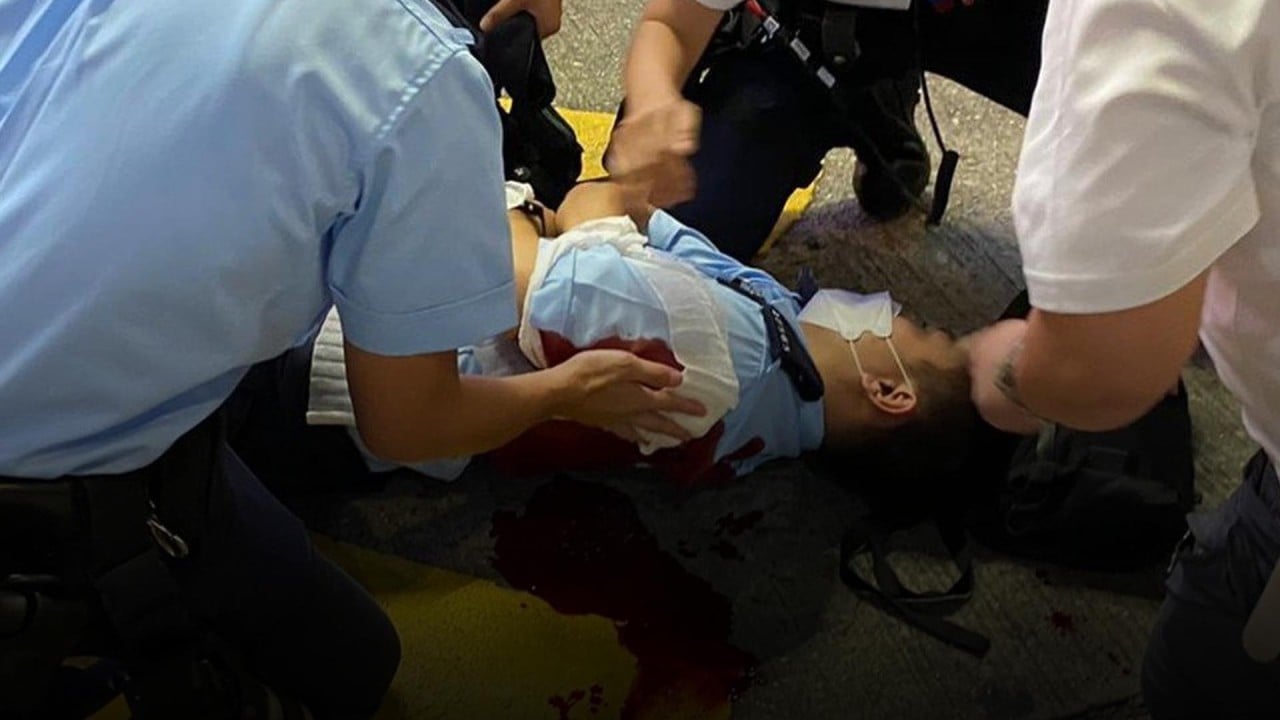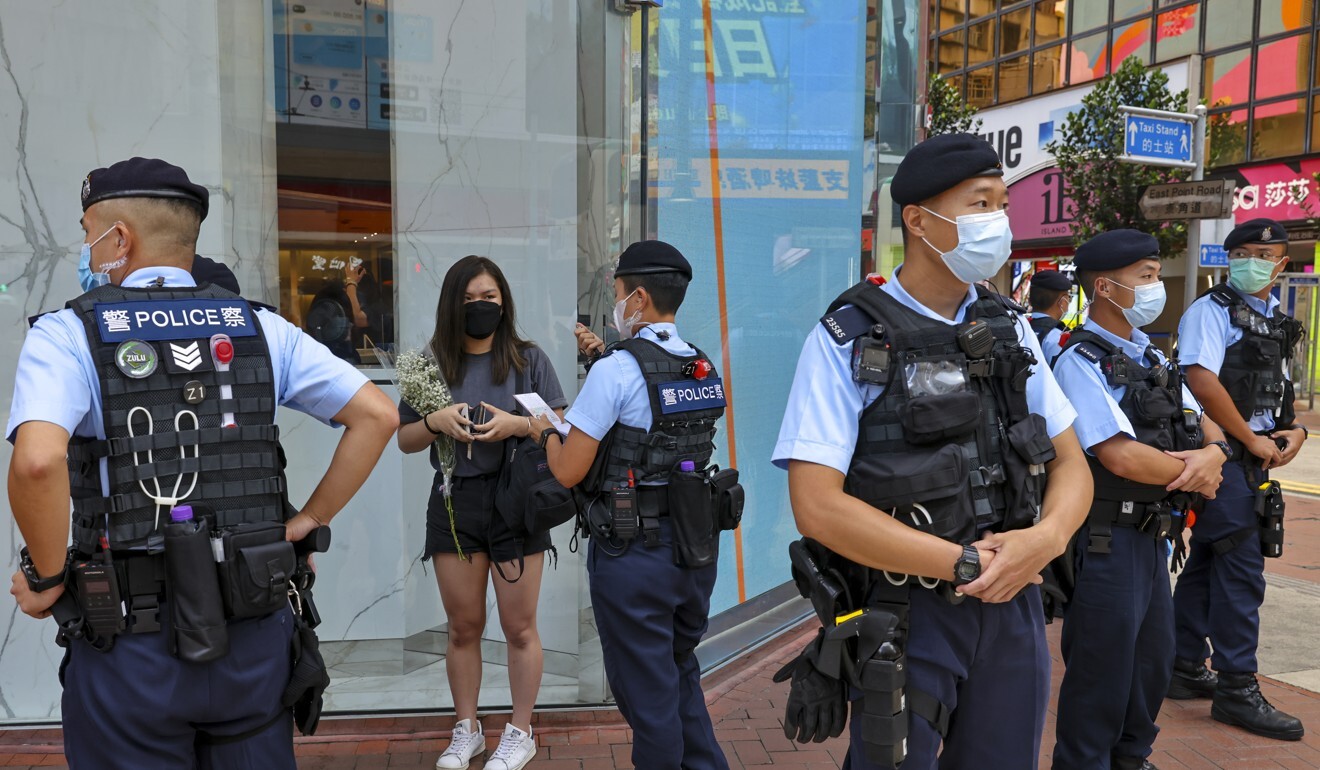
Hong Kong leader Carrie Lam pledges new laws to shore up national security after Beijing sets issue as city’s top priority
- Recent knife attack on police officer, arrests related to violent crimes, online threats all part of worrying trend, Lam says
- Chief executive calls for implementation of new laws to be sped up after President Xi Jinping tells city to focus on national security
Hong Kong’s leader has vowed to implement new laws and spur government departments to do more to combat what she characterised as the lingering risks to national security posed by “foreign forces” and social media.
“These show that ‘black violence’ has transformed from actions conducted by a crowd on the ground, to hidden, individualised acts. This could cause problems for our city,” she warned.
Hong Kong police arrest 9 over alleged terrorist bomb plot

“Foreign forces and politicians are still smearing the security law and our law enforcement. They joined hands with suspected criminals who fled overseas in rocking the boat, and challenged the government’s authority,” she said.
Lam said the city’s lack of regulations on social media and the internet were also to blame.
She said that law enforcement agencies would do their best to track down criminals who advocated violence, but other departments and public bodies also needed to work together to tackle the troubling trend.
Hong Kong anti-doxxing law fears will be proven false, Lam assures tech giants
“The policy bureaus will also expedite their study on implementing new laws so that we can establish a better legal system and enforcement mechanisms to safeguard national security,” she said.
“All departments and public bodies … must not allow education, broadcasting, and arts and culture [to be misused] to infiltrate, to beautify violence and to mar residents’ consciences.”

01:59
Assailant dies after stabbing Hong Kong police officer and then himself on busy street
The chief executive also pledged to step up education efforts to help young people recognise misinformation on the internet, but said parents and educators needed to help.
“Parents, school principals, teachers and pastors need to help observe the acts of the young, and counsel them,” she added.
“If anyone is engaging in illegal acts, report it to law enforcement agencies ... Do not cite fallacies like ‘the government is also responsible for this’, ‘there is just tyranny, but no violence’, and ‘sometimes violence can solve problems’.”
New threat as Hong Kong separatists adopt fresh approach, security chief warns
Asked if the government’s own missteps were to blame for people’s grievances and the sometimes violent outcomes as some analysts and opposition figures have suggested, Lam dismissed such arguments as “preposterous”.
“When dealing with national security and public safety issues, we should not correlate it to governance. The governance of any administration can be improved anytime,” she said.
Lam was also asked to clarify whether publicly mourning the assailant who killed himself on July 1 after stabbing a police officer constituted a crime, after Chief Secretary John Lee Ka-chiu previously warned that laying flowers at the scene could be seen as “advocating sabotage”.

The chief executive said it would be up to prosecutors to decide whether the act constituted an offence, but noted it was “immoral, certainly”.
Mourning the attacker, she added, “might intentionally or unintentionally have the undesirable impact of inciting more people to commit that sort of act”.
Referring to Lam’s calls for new legislation regulating media and the internet, Kelvin Sin Cheuk-nam, the Democratic Party’s spokesman on broadcasting policy, said there were already local laws in place that forbade inciting violence.
He also worried aloud that any moves to ban so-called fake news would be used to further undermine the city’s freedom of speech, and suggested the government was missing the point.
“The government has turned a blind eye to social grievances accumulated in the past two years,” he said.


